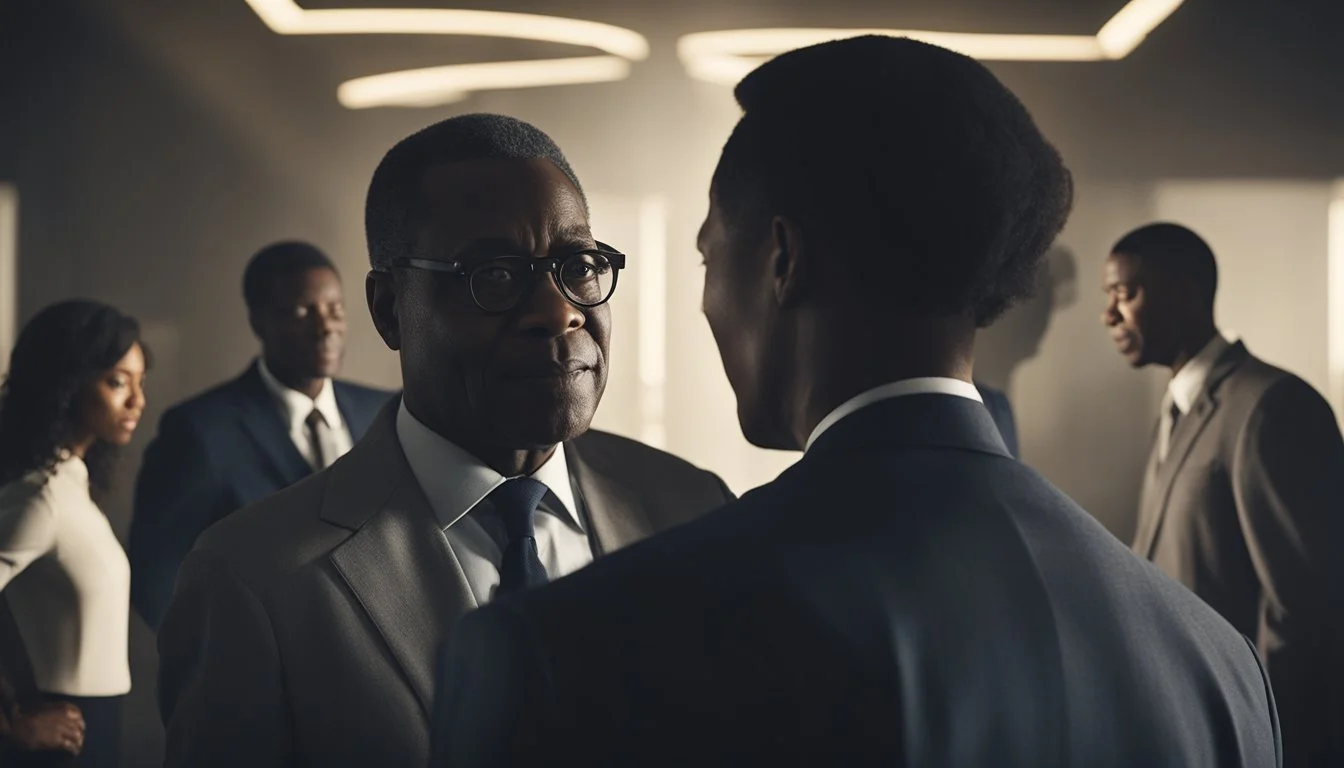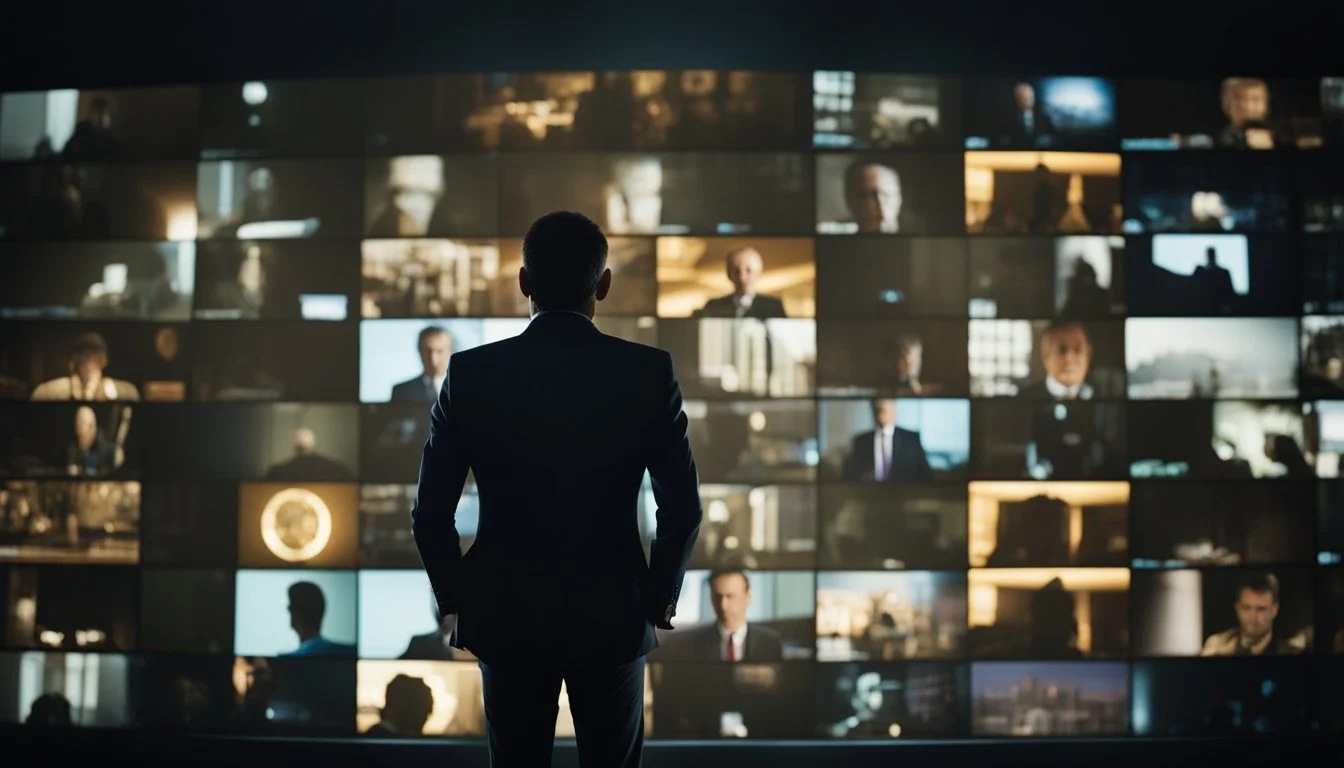6 Films About Political Conspiracies That Will Keep You on the Edge
Political conspiracy films captivate audiences by tapping into the allure of secrecy and the complexity of power struggles. These movies often provide thrilling narratives that explore the hidden machinations behind significant historical and fictional events. The fascination with these films lies in their ability to make viewers question the surface reality and consider the possibility of intricate plots operating behind the scenes.
Such films blend elements of drama, suspense, and real-world politics, making them both entertaining and thought-provoking. By delving into these cinematic interpretations of conspiracies, viewers are taken on a journey that often reveals the darker sides of governmental and institutional operations, challenging their perceptions of truth and authority.
1) All the President's Men (1976)
"All the President's Men" is a classic political thriller directed by Alan J. Pakula.
The film stars Robert Redford and Dustin Hoffman as Washington Post reporters Bob Woodward and Carl Bernstein. Their investigation into the Watergate scandal leads to the resignation of President Richard Nixon.
It is based on the non-fiction book by Woodward and Bernstein and is known for its meticulous portrayal of investigative journalism. The movie accurately depicts the tension and challenges faced by the reporters as they uncover the truth.
The film's attention to detail and compelling performances have made it a critical and commercial success. It has become an enduring reference point for films about political conspiracies.
For more information, visit Wikipedia.
2) The Manchurian Candidate (1962)
Director John Frankenheimer's "The Manchurian Candidate" is a seminal film in the conspiracy thriller genre. It stars Frank Sinatra, Laurence Harvey, and Angela Lansbury.
The plot centers around a former Korean War POW who is brainwashed into becoming an unwitting assassin in an international communist conspiracy.
Laurence Harvey plays Raymond Shaw, the brainwashed soldier, while Angela Lansbury delivers a chilling performance as his manipulative mother.
The film explores themes of Cold War paranoia and the fear of communist infiltration. It remains influential in how these themes are portrayed in cinema.
For those interested in political thrillers, "The Manchurian Candidate" remains a must-watch. Its impact can be seen in numerous conspiracy films that followed.
More about the movie can be found on IMDB.
3) JFK (1991)
Oliver Stone's film "JFK" stands as a cornerstone in the genre of political conspiracy movies. It zeroes in on the assassination of President John F. Kennedy and the subsequent investigation. Stone artistically explores the ambiguities and unanswered questions that surround this historical event.
The movie follows New Orleans district attorney Jim Garrison as he probes the assassination. Kevin Costner delivers a masterful performance as Garrison, pursuing leads and questioning the official narrative. This film compelled viewers to think deeply about the various inconsistencies in the case.
Featuring an ensemble cast including Donald Sutherland, Tommy Lee Jones, and Gary Oldman, "JFK" merges powerful storytelling with a thought-provoking script. It pushes the boundaries of typical historical dramas, venturing into a labyrinth of theories and speculations about who was really behind JFK's death.
For more information, visit "JFK" on IMDb.
4) Three Days of the Condor (1975)
"Three Days of the Condor" is a political thriller film directed by Sydney Pollack. Released in 1975, it stars Robert Redford, Faye Dunaway, Cliff Robertson, and Max von Sydow.
The film is based on James Grady's novel "Six Days of the Condor" from 1974. The screenplay was written by Lorenzo Semple Jr. and David Rayfiel.
Set mainly in New York City and Washington, D.C., the story follows a bookish CIA researcher who uncovers a conspiracy within the agency.
"Three Days of the Condor" is notable for its intelligent and suspenseful storytelling. It's influenced by the political climate of the 1970s, particularly the Watergate scandal and the Pentagon Papers.
The film received critical acclaim and has since become a cult classic, praised for its relevance and gripping narrative.
For more details, visit the Wikipedia page.
5) Z (1969)
"Z" is a gripping political thriller directed by Costa-Gavras.
Released in 1969, the film is a bold exposition of political corruption and assassination in Greece.
It draws from the true story of Greek politician Grigoris Lambrakis.
The narrative centers on the investigation following Lambrakis' murder, highlighting the pervading political corruption and state-sponsored violence.
The film's visual storytelling and intense performances keep viewers engaged.
Starring Jean-Louis Trintignant, Yves Montand, and Irene Papas, "Z" was acclaimed for its realistic portrayal and received several awards.
It won the Best Foreign Language Film Oscar and the Jury Prize at Cannes.
To learn more about the film, visit IMDB.
6) Enemy of the State (1998)
Enemy of the State, directed by Tony Scott, is a gripping political action thriller. The film explores the story of corruption within the National Security Agency (NSA). Will Smith stars as a lawyer unwittingly thrust into a high-stakes conspiracy.
Gene Hackman delivers a standout performance as a former NSA operative. His character serves as both an ally and mentor to Smith's character. The film is noted for its intense pacing and action-packed sequences.
The narrative focuses on the dangers of surveillance and the abuse of government power. This theme resonates strongly given contemporary concerns about privacy and state overreach. The ensemble cast includes notable actors such as Jon Voight, Regina King, and Barry Pepper.
Enemy of the State received acclaim for its storytelling and technical achievements. It remains a significant work within the political thriller genre, reflective of late 1990s cinematic trends and anxieties.
For more details, see Enemy of the State on Wikipedia.
Defining Political Conspiracies
Political conspiracies involve secret plans by a group to influence political events, often using unlawful means. These conspiracies are rooted in history and possess distinct characteristics that set them apart.
Historical Context
Political conspiracies have existed throughout history, often reshaping nations and altering the course of events. The assassination of President John F. Kennedy in 1963 is a prime example, stirring multiple theories about potential confederates.
The Watergate Scandal in the 1970s involved a break-in at the Democratic National Committee headquarters, leading to the resignation of President Nixon.
Other historical instances include the Iran-Contra affair, where U.S. officials secretly sold arms to Iran and diverted the proceeds to Nicaraguan rebels. These examples underscore the profound impact political conspiracies can have, sometimes instilling widespread public mistrust.
Characteristics of Political Conspiracies
Secrecy is a crucial element, with plans kept hidden from public knowledge to avoid detection.
Illegality often accompanies these conspiracies, involving unlawful acts such as espionage, fraud, or even murder.
Political Motives drive these conspiracies, whether it's maintaining power, overthrowing a regime, or manipulating policy.
Complexity is also common, involving intricate networks and multiple actors working covertly over extended periods.
Finally, Risk and Consequences are significant, often endangering lives, destabilizing governments, and causing societal upheaval. These features combine to create scenarios that are both compelling and deeply concerning.
The Impact of Political Conspiracy Films
Political conspiracy films shape both cultural trends and the way the public perceives politics. These films often underscore societal doubts about government transparency and influence general attitudes towards political institutions.
Cultural Influence
Political conspiracy films frequently reflect and influence cultural anxieties of their time. Movies like The Manchurian Candidate capture Cold War fears, while JFK delves into the collective doubt surrounding the Kennedy assassination.
Such films often inspire discussions and media coverage, embedding themselves in the collective consciousness.
They also provide a space for filmmakers to critique political systems, thus shaping cultural narratives around government distrust.
Public Perception of Politics
These films impact the way people view political processes and institutions. Movies like The Parallax View suggest the possibility of hidden agendas, influencing viewers to question official narratives and fostering skepticism.
This can lead to increased public scrutiny of political actions and policies, as well as a heightened demand for transparency.
Furthermore, political conspiracy films can affect electoral behavior, with audiences becoming more critical of political leaders and their decisions.




